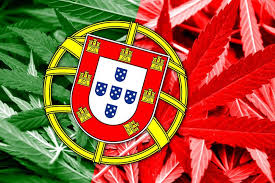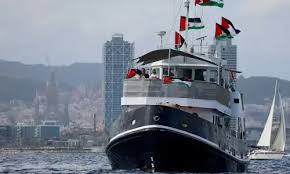Portugal grows tonnes of legal medical cannabis. For patients, the black market is the only option

Lisbon: In 2023, Portugal exported 11 tonnes of cannabis but only 17 kg were sold within its borders. Patients still resort to the black market although the plant is legal in the country
When Paula Motta discovered medical cannabis in 2017, it was still illegal in Portugal.
Her 10-year-old daughter suffered epileptic episodes up to four times a day – some lasting 20 minutes – while the 16 daily pills she was taking were ineffective against her Dravet syndrome.
Motta decided to give her daughter drops of cannabis extract, and over time, the girl’s crises became less frequent.

The teenager continues to take two pills along with two drops of cannabis – one in the morning and one in the evening – and episodes only occur “every fifteen days, for about two minutes”.
“Medical cannabis changed her life,” said Motta, speaking to Euronews Health in her home in Porto.
Medical cannabis was approved in 2018 and regulated in 2019 in Portugal – the first country in the world to decriminalise the recreational use of all drugs in 2001. Medicines, preparations and substances based on the cannabis plant for “medicinal purposes” are legal.
Motta – who is the co-founder of Mothers for Cannabis, an association created to guide the parents of children with untreatable diseases – continues to be in breach of the law today: the form of cannabis she gives her daughter isn’t legal in Portugal.
While dozens of pharma and agriculture companies flocked to the country following the legalisation of medical cannabis, access remains extremely restricted for Portuguese patients.
The only product which is currently sold in Portugal is Canadian producer Tilray’s cannabis flower, with 18 per cent THC – the principal psychoactive constituent of the plant.

Patients can either smoke the bud or heat it with a machine and inhale the vapour.
The only product which is currently sold in Portugal is Canadian producer Tilray’s cannabis flower, with 18 per cent THC.
A box of 15 g costs €150 – well over black market rates – and isn’t reimbursed by health insurance. What’s more, the flower can only be prescribed to patients suffering from seven specific conditions for whom all other “chemical” options have been unfruitful.
The product isn’t stocked by the country’s three largest pharmaceutical suppliers, and in 2023, a bit more than a thousand boxes of Tilray were sold, the equivalent of 17 kg.
The same year, 11 tonnes of medical cannabis were exported from Portugal by the 40 or so companies set up in the country, including Somai Pharmaceuticals.
About 30 minutes’ drive north of Lisbon, the machines at its state-of-the-art European plant are whirring and its employees busy when Euronews Next visits. Set up in 2019, the company is aiming to become a world leader in the industry.
“Portugal is the number one infrastructure for cannabis in the entire EU. They have the most cultivations, which you need for manufacturing, they have a regulatory agency that’s approving of us, and big companies like Tilray paved the way to make things more efficient for companies like ourselves,” said Michael Sassano, the founder of Somai.
From gel capsules to oils, all the medical cannabis produced by the company is exported, and none of the 80 different pharmaceutical products it sells all over the world are available in Portugal.
The company is awaiting the registration of 20 new products in the country and is hoping to enter the Portuguese market soon. But speaking to Euronews Health, Sassano remained cautious.
“We’re a global company and as countries develop, we plug into that. We are still waiting for Portugal but it’s still a very small market compared to the biggest markets like Australia and Germany,” he said, adding “it’s quite sad that the access isn’t there for the medical patients, but I do believe that will pick up”.
One person who hopes it will is Dr Ana Rita Andrade. In the evenings after work, she gives online consultations on medical cannabis in her home just south of Porto.
The GP is one of the few practitioners in the country to have medical knowledge on cannabis. She set up Kanabclinic in 2019 and advises up to 500 patients, often referred to her by colleagues.
“The problem in Portugal is that doctors don’t know anything about cannabinoids. It’s still very new to them,” said Andrade, about the compounds found in the cannabis plant.
The products available aren’t adapted to most needs according to the expert, a thought which Carla Dias, the president of the Portuguese observatory for cannabis, echoes.
“The first reason for little use of cannabis in Portugal is that doctors don’t have too many drugs to prescribe from. The second is that there aren’t different compositions or administration methods available, and the third reason might be the stereotype linked to cannabis,” she said.
When Euronews Health met her, Dias was busy organising the third edition of the National Conference on Medicinal Cannabis, inviting pharmacists, doctors, pharma companies and students to the faculty of medicine of the University of Coimbra.
Three new products – another flower and two oils – recently received the green light to be commercialised in the country, giving hope to Dias that medical cannabis will pick up in Portugal, five years into legality.
Portugal is currently the second biggest producer of cannabis in the EU. Every year, the International Narcotics Control Board (INCB) compiles the expected production of controlled substances intended for medical and scientific purposes by country.
In 2024, Portuguese authorities declared 34 tonnes of medical cannabis, just a little less than Spain and its 36 tonnes.
Luis Meirinhos Soares worked at the government’s medical regulator for over 25 years and now consults for Cannavigia, a compliance software for cannabis transparency.
He believes that Portugal’s regulation rightly focuses on safety and quality, but regrets the lack of access.
“The purpose of the law (on medical cannabis) was to allow patients in need to gain access to the medicine. But this current framework is not able to do it,” he told Euronews Health.
According to the expert, Portugal could follow in the steps of other European countries like Germany, where pharmacies can sell “magistral formulations” or custom-prepared flowers and extracts based on medical prescriptions.
Another difficulty across the EU is the lack of “mutual recognition” for medical cannabis. While “traditional” medicine can be sold in other countries if it’s approved in one, cannabis plants aren’t included in this procedure.
In February, the European Commission registered a citizen initiative calling for better access to medical cannabis.
“Foster access to medical cannabis based on scientific evidence and the experiences of patients, and allow patients the transportation of cannabis (…) throughout the EU, to ensure the full enjoyment of the right to health,” the initiative states, while also calling for the legalisation of recreational use – a point refused by the EU.
If the petition receives at least one million signatures in at least seven member states within six months of launching, legislation for better access to health.





